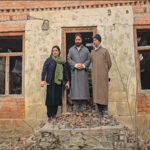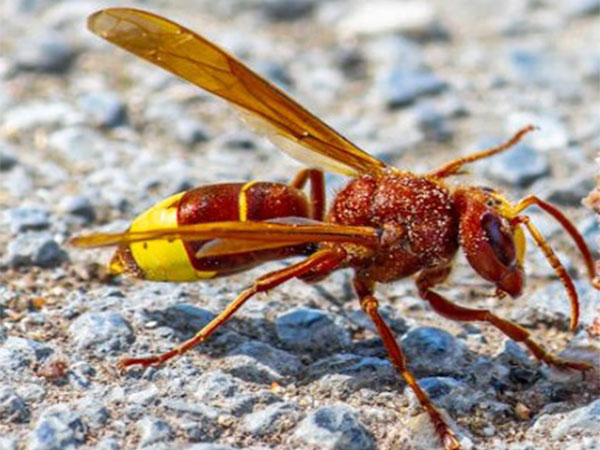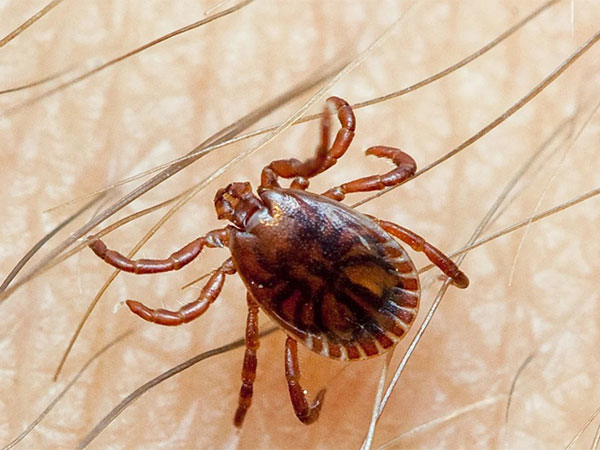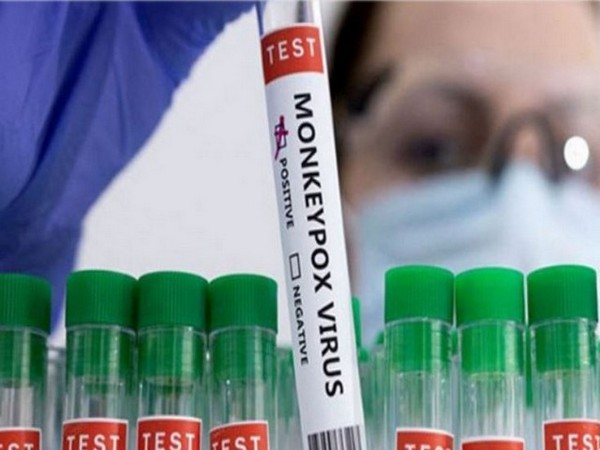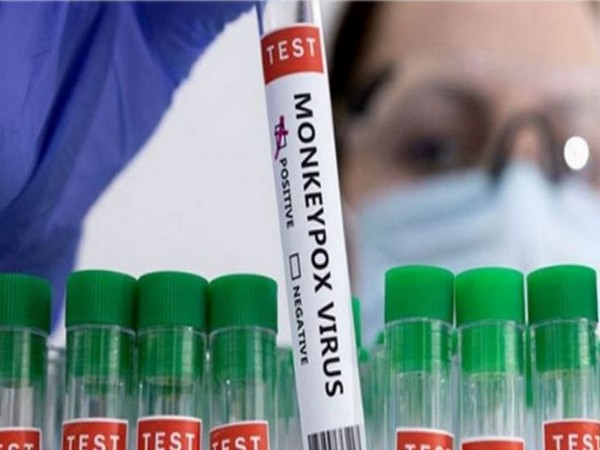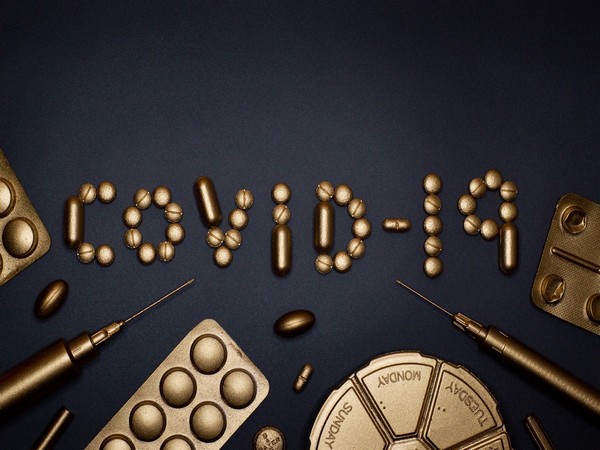
London [UK], November 28 (ANI): A new research has discovered a gradual increase in the risk of COVID-19 infection from 90 days after receiving a second dose of the Pfizer-BioNTech vaccine. Results confirm that protection wanes with time and suggest a third (booster) dose might be warranted. The findings of the study were published in the journal ‘BMJ’.
The study was carried out by the Research Institute of Leumit Health Services in Israel. Israel was one of the first countries to roll out a large-scale covid-19 vaccination campaign in December 2020, but it has seen a resurgence of infections since June 2021. The findings confirm that the Pfizer-BioNTech vaccine provided excellent protection in the initial weeks after vaccination, but suggest that protection wanes for some individuals with time.
Across the world, large-scale covid-19 vaccination campaigns are helping to control the spread of the virus, but even in countries with high vaccination rates, breakthrough infections can occur, which scientists think is due to a gradual loss of immunity over time. Examining the time elapsed since vaccination and the risk of infection could provide important clues about the need for a third injection and its preferred timing.
To do this, the researchers examined electronic health records for 80,057 adults (average age 44 years) who received a PCR test at least three weeks after their second injection and had no evidence of previous covid-19 infection.
Of these 80,057 participants, 7,973 (9.6 percent) had a positive test result. These individuals were then matched to negative controls of the same age and ethnic group who were tested in the same week. The rate of positive results increased with time elapsed since a second dose. For example, across all age groups, 1.3 percent of participants tested positive 21-89 days after a second dose, but this increased to 2.4 percent after 90-119 days; 4.6 percent after 120-149 days; 10.3 percent after 150-179 days; and 15.5 percent after 180 days or more.
And after taking account of other potentially influential factors, the researchers found a significantly increased risk of infection with time elapsed since a second dose. Compared with the initial 90 days after a second dose, the risk of infection across all age groups was 2.37-fold higher after 90-119 days; 2.66-fold higher after 120-149 days; 2.82-fold higher after 150-179 days; and 2.82-fold higher after 180 days or more.
The researchers acknowledge that interpretation of their findings is limited by the observational design, and they cannot rule out the possibility that other unmeasured factors such as household size, population density, or virus strain may have had an effect.
However, this was a large study of people who all received the same vaccine, and the researchers were able to carry out a detailed analysis of the data, suggesting that the results are robust. As such, they conclude that in individuals who received two doses of the Pfizer-BioNTech vaccine, protection seemed to decrease over time, and the risk of breakthrough infection increased progressively compared with the protection provided during the initial 90 days. The results suggest that consideration of a third vaccine dose might be warranted, they added. (ANI)
Uncommon for unborn babies to contract COVID-19: Study
London [UK], November 27 (ANI): According to a study led by UCL researchers with Great Ormond Street Hospital for Children and the NIHR Great Ormond Street Biomedical Research Centre, it is only possible for an unborn baby to contract Covid-19 if their gut is exposed to the SARS-CoV-2 virus. The research was published in the ‘BJOG – An International Journal of Obstetrics & Gynaecology Journal’.
Although the study did not look specifically at mothers with Covid-19 and whether their infection was transmitted to an unborn baby, it found that certain fetal organs, such as the intestine, are more susceptible to infection than others.
However, researchers said, that opportunities for the Covid-19 virus infecting the fetus are extremely limited, as the placenta acted as a highly effective and protective shield, and evidence suggested fetal infection, known as vertical transmission, is extremely uncommon.
Researchers set out to understand how newborn babies could have developed Covid-19 antibodies, as it had been reported in a small number of cases. Specifically, they wanted to know if and how the virus could be passed from an infected mother to the unborn fetus.
To answer this question, researchers examined various fetal organs and placenta tissue to see if there was any presence of the cell surface protein receptors, ACE2 and TMPRSS2. These two receptors sit on the outside of cells and both are needed for the SARS-Cov-2 virus to infect and spread.
Researchers found the only fetal organs to feature both the ACE2 and TMPRSS2 were the intestines (gut) and the kidney; however, the fetal kidney is anatomically protected from exposure to the virus and is, therefore, less at risk of infection.
Therefore, the team concluded that the SARS-CoV-2 virus could only infect the fetus via the gut and through fetal swallowing of amniotic fluid, which the unborn baby does naturally for nutrients.
After birth ACE2 and TMPRSS2 receptors are known to be present in combination on the surface of cells in the human intestine as well as the lung. The gut and lung are suspected to be the main routes for Covid-19 infection, but in younger children, the intestine appeared to be most important for virus infection.
Senior author, Dr Mattia Gerli (UCL Division of Surgery and Interventional Science & the Royal Free Hospital) explained, “The fetus is known to begin swallowing the amniotic fluid in the second half of pregnancy. To cause infection, the SARS-CoV-2 virus would need to be present in significant quantities in the amniotic fluid around the fetus.”
“However, many studies in maternity care have found that the amniotic fluid around the fetus does not usually contain the SARS-CoV2 virus, even if the mother is infected with Covid-19. Our findings, therefore, explain that clinical infection of the fetus during pregnancy is possible but uncommon and that is reassuring for parents-to-be,” Gerli added.
The study, funded by the Medical Research Council (MRC) and UKRI COVID-19 rapid response initiative, provided the most definitive information, to date, regarding the susceptibility of the human fetus to COVID-19 infection.
Fetal organs and tissues were made available via the Human Developmental Biology Resource (HDBR) biobank, which assisted embryonic/fetal research. None of the organs and tissues from donated fetuses was from Covid-19-infected mothers and, in line with ethical guidelines, the research team did not test for Covid-19 antibodies.
Co-senior author Professor Paolo De Coppi (UCL Great Ormond Street Institute of Child Health and NIHR Great Ormond Street Hospital) said, “We have shown that the fetal intestine, which is in contact with amniotic fluids swallowed by the baby, is susceptible to SARS-CoV-2 virus. However, the placenta acts as a natural barrier, and with the limited evidence of amniotic fluid containing the virus, our study should provide reassurance to mothers.”
The authors highlighted that the biggest risk to the fetus during pregnancy is if the mother becomes very unwell with Covid-19 infection. In this instance, the virus may be present in high concentrations in the amniotic fluid. In addition, it could damage the placenta, which can lead to preterm birth.
Co-author, Professor Anna David (UCL Elizabeth Garrett Anderson Institute for Women’s Health and UCLH NIHR Biomedical Research Centre) added, “Vaccination against Covid-19 is known to be safe in pregnancy and reduces the chance of Sars-CoV2 infection to very low levels. The results of this study provide definitive information regarding the susceptibility of the human fetus to Covid-19 infection. Our findings support current healthcare policy that vaccination in pregnancy is the best way for mothers to protect their unborn baby from Covid-19 infection.” (ANI)
Research discovers COVID infection risk rises after second vaccine dose
London [UK], November 28 (ANI): A new research has discovered a gradual increase in the risk of COVID-19 infection from 90 days after receiving a second dose of the Pfizer-BioNTech vaccine.
Results confirm that protection wanes with time and suggest a third (booster) dose might be warranted.
The findings of the study were published in the journal ‘BMJ’.
The study was carried out by the Research Institute of Leumit Health Services in Israel. Israel was one of the first countries to roll out a large-scale covid-19 vaccination campaign in December 2020, but it has seen a resurgence of infections since June 2021.
The findings confirm that the Pfizer-BioNTech vaccine provided excellent protection in the initial weeks after vaccination, but suggest that protection wanes for some individuals with time.
Across the world, large-scale covid-19 vaccination campaigns are helping to control the spread of the virus, but even in countries with high vaccination rates, breakthrough infections can occur, which scientists think is due to a gradual loss of immunity over time.
Examining the time elapsed since vaccination and the risk of infection could provide important clues about the need for a third injection and its preferred timing.
To do this, the researchers examined electronic health records for 80,057 adults (average age 44 years) who received a PCR test at least three weeks after their second injection and had no evidence of previous covid-19 infection.
Of these 80,057 participants, 7,973 (9.6 percent) had a positive test result. These individuals were then matched to negative controls of the same age and ethnic group who were tested in the same week.
The rate of positive results increased with time elapsed since a second dose. For example, across all age groups, 1.3 percent of participants tested positive 21-89 days after a second dose, but this increased to 2.4 percent after 90-119 days; 4.6 percent after 120-149 days; 10.3 percent after 150-179 days; and 15.5 percent after 180 days or more.
And after taking account of other potentially influential factors, the researchers found a significantly increased risk of infection with time elapsed since a second dose.
Compared with the initial 90 days after a second dose, the risk of infection across all age groups was 2.37-fold higher after 90-119 days; 2.66-fold higher after 120-149 days; 2.82-fold higher after 150-179 days; and 2.82-fold higher after 180 days or more.
The researchers acknowledge that interpretation of their findings is limited by the observational design, and they cannot rule out the possibility that other unmeasured factors such as household size, population density, or virus strain may have had an effect.
However, this was a large study of people who all received the same vaccine, and the researchers were able to carry out a detailed analysis of the data, suggesting that the results are robust.
As such, they conclude that in individuals who received two doses of the Pfizer-BioNTech vaccine, protection seemed to decrease over time, and the risk of breakthrough infection increased progressively compared with the protection provided during the initial 90 days. The results suggest that consideration of a third vaccine dose might be warranted, they added. (ANI)




